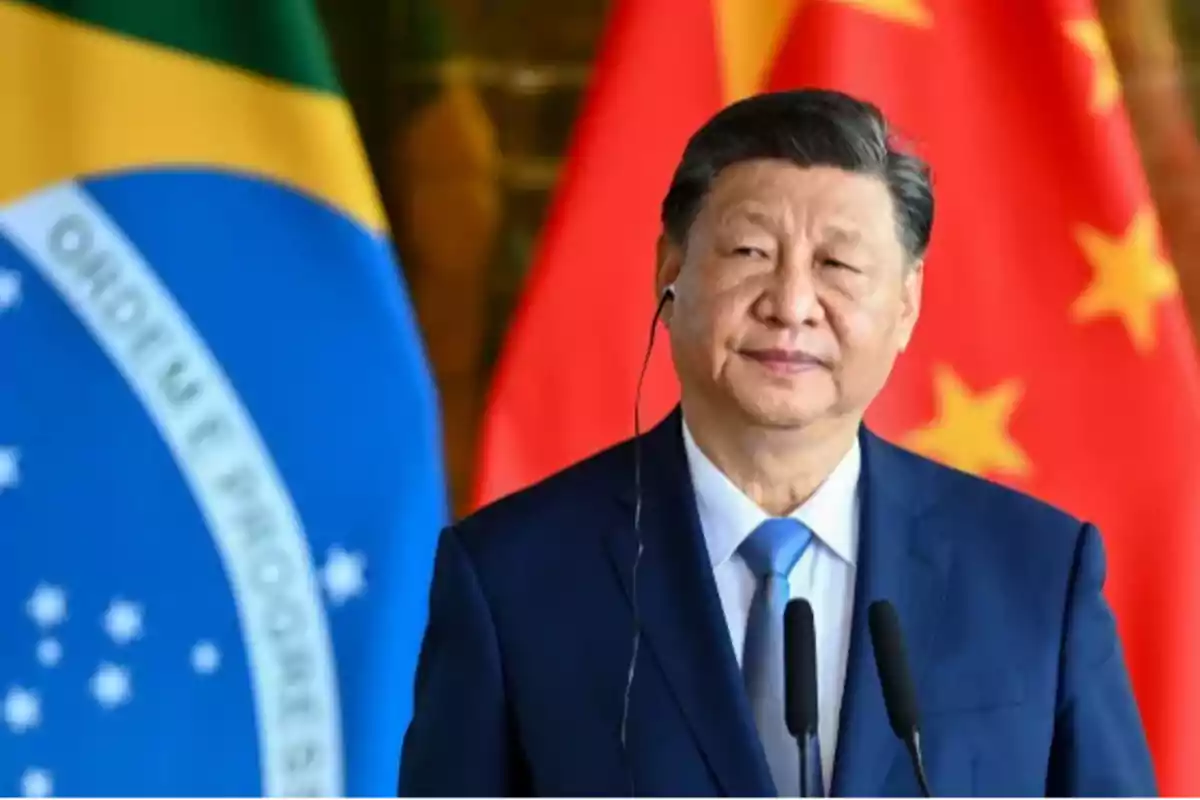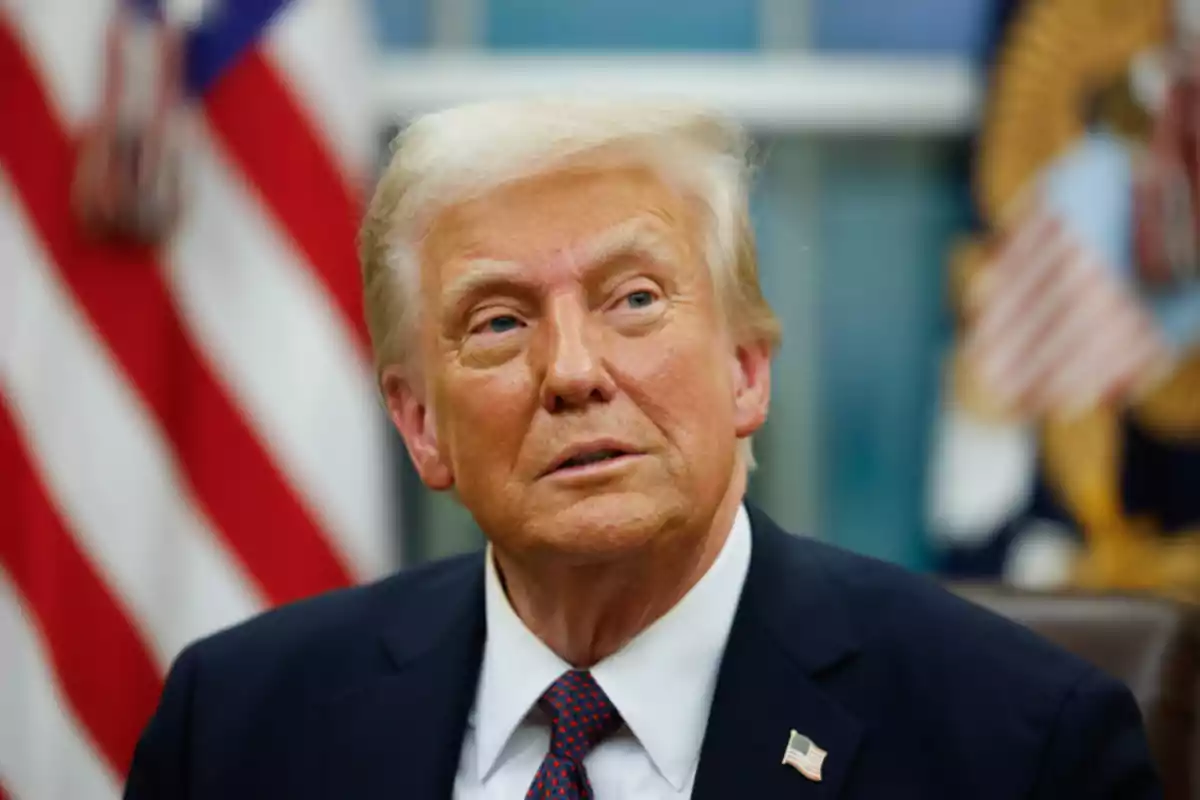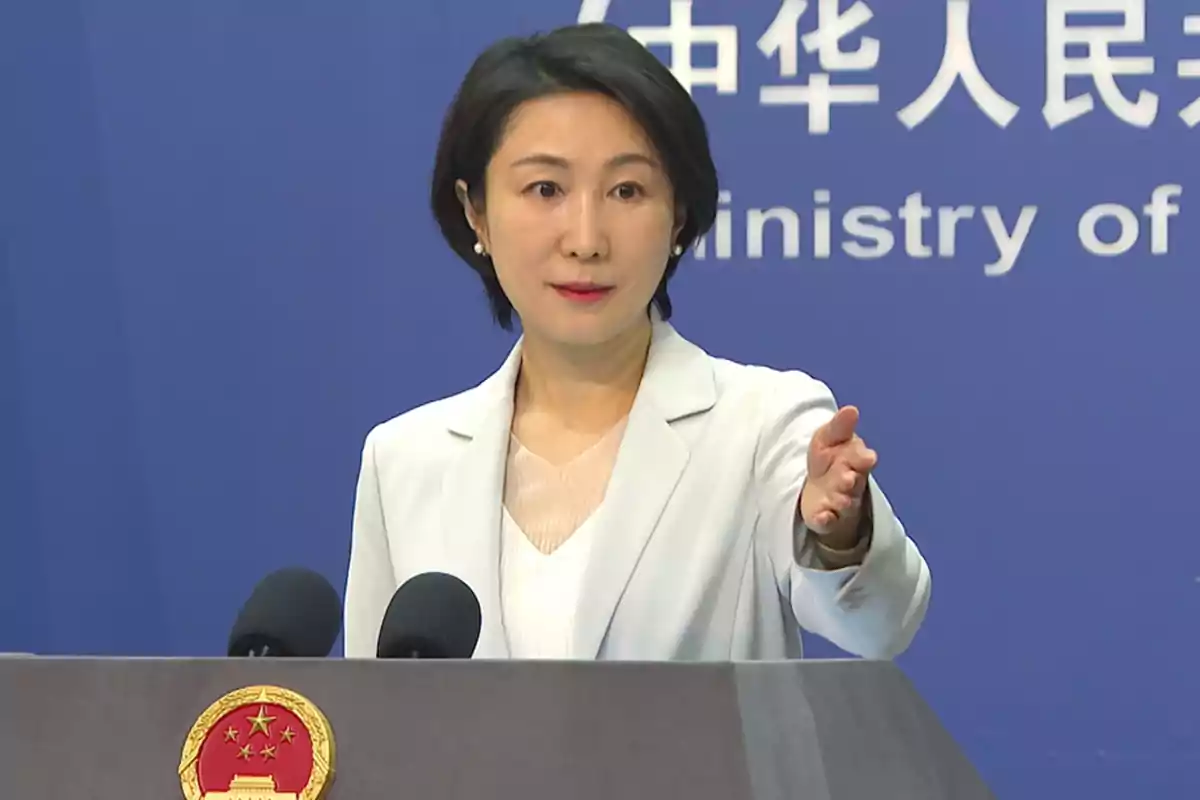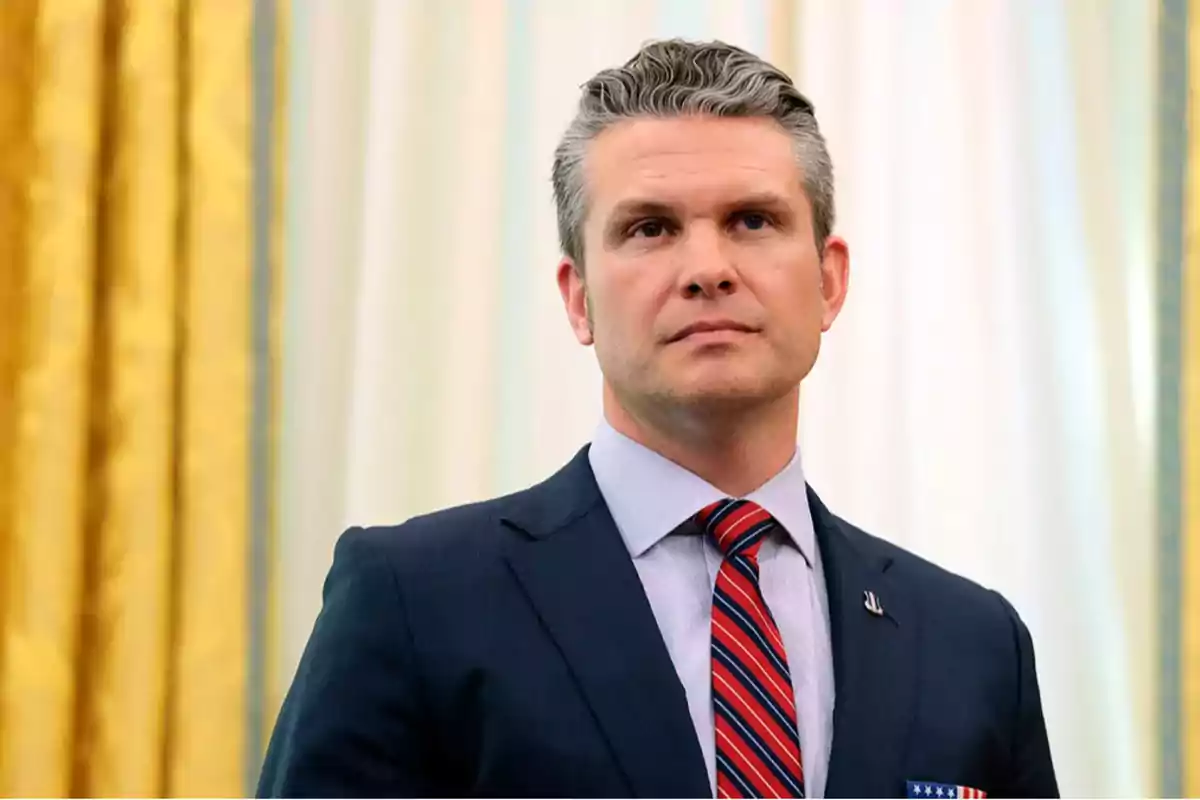
China urged the United States to halt the 'Golden Dome' space defense project.
Xi Jinping's regime requested Donald Trump's government to halt all activities related to the ambitious defense project
The President of the United States, Donald Trump, presented the ambitious "Golden Dome" missile defense project this week, an initiative that aims to develop a global shield to protect U.S. territory from nuclear threats and missiles from powers like China, Russia, and North Korea.
The plan includes a total investment of 125 billion dollars and aims to be operational within three years.
Trump announced the selection of General Michael Guetlein from the Space Force as the project leader, with the support of Defense Secretary Pete Hegseth.
The President stated that this new system will complete the vision of the "Star Wars" program promoted by Ronald Reagan in the 1980s, ensuring that the "Golden Dome" will be capable of intercepting missiles launched from anywhere in the world, even from space.

Trump claimed that the system will have a "near 100%" success rate, comparing it to the test results of the THAAD system, although previous Pentagon acknowledgments indicate that current systems like the Ground-based Midcourse Defense (GMD) have only had a 57% effectiveness in tests between 1997 and 2023.
The project is part of the legislative project "One Big Beautiful Bill Act," which also includes tax cuts and other political priorities of Trump. Within the initial budget of 25 billion dollars, funds are allocated for space sensors, boost-phase interceptors, hypersonic defenses, non-kinetic technologies, and satellites for tracking aerial targets.
Trump's announcement sparked a strong response from the Chinese government. The Foreign Ministry spokesperson, Mao Ning, expressed on Wednesday that China is "seriously concerned" about the development of the "Golden Dome," calling it an initiative with "strong offensive implications" that undermines the global strategic balance and promotes the militarization of space.
According to Mao, the U.S. project violates the principle of peaceful use of space established in the Outer Space Treaty and represents a threat to international stability.

She criticized the United States for pursuing a policy of "absolute security," prioritizing its interests over global balance. China urged Washington to abandon the development of the shield and to take measures to strengthen strategic trust among major powers.
Despite both China and Russia possessing offensive capabilities in space, including anti-satellite weapons, the Chinese government accused the United States of fostering a space arms race.
Mao warned that the "Golden Dome" increases the risk of turning space into a war theater, and called on the United States to act responsibly.
The Kremlin also reacted to the proposal. Spokesman Dmitry Peskov noted that the project's advancement could motivate new discussions on strategic arms control between Russia and the United States.

Moscow recalled that in recent years the United States withdrew from key treaties like the Intermediate-Range Nuclear Forces Treaty (INF) in 2019 and the Anti-Ballistic Missile Treaty (ABM) in 2002, accusing Russia of violations, something the Russian government has denied.
Peskov emphasized the need to rebuild a legal framework that regulates strategic stability among major powers, highlighting its importance for global security.
The rapid technological advancement of China in space has also raised concerns in the U.S. high command. According to General B. Chance Saltzman of the Space Force, China has achieved "impressive" growth in its space capabilities, deploying hundreds of satellites to track U.S. assets.
Additionally, General Guetlein recently warned that China is practicing "space combat" or "dogfighting" maneuvers between satellites, which represents an advanced level of orbital operation.

More posts: